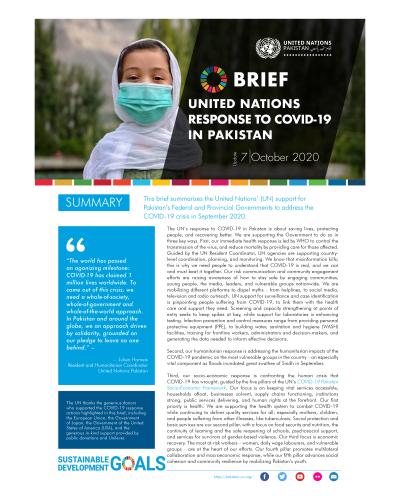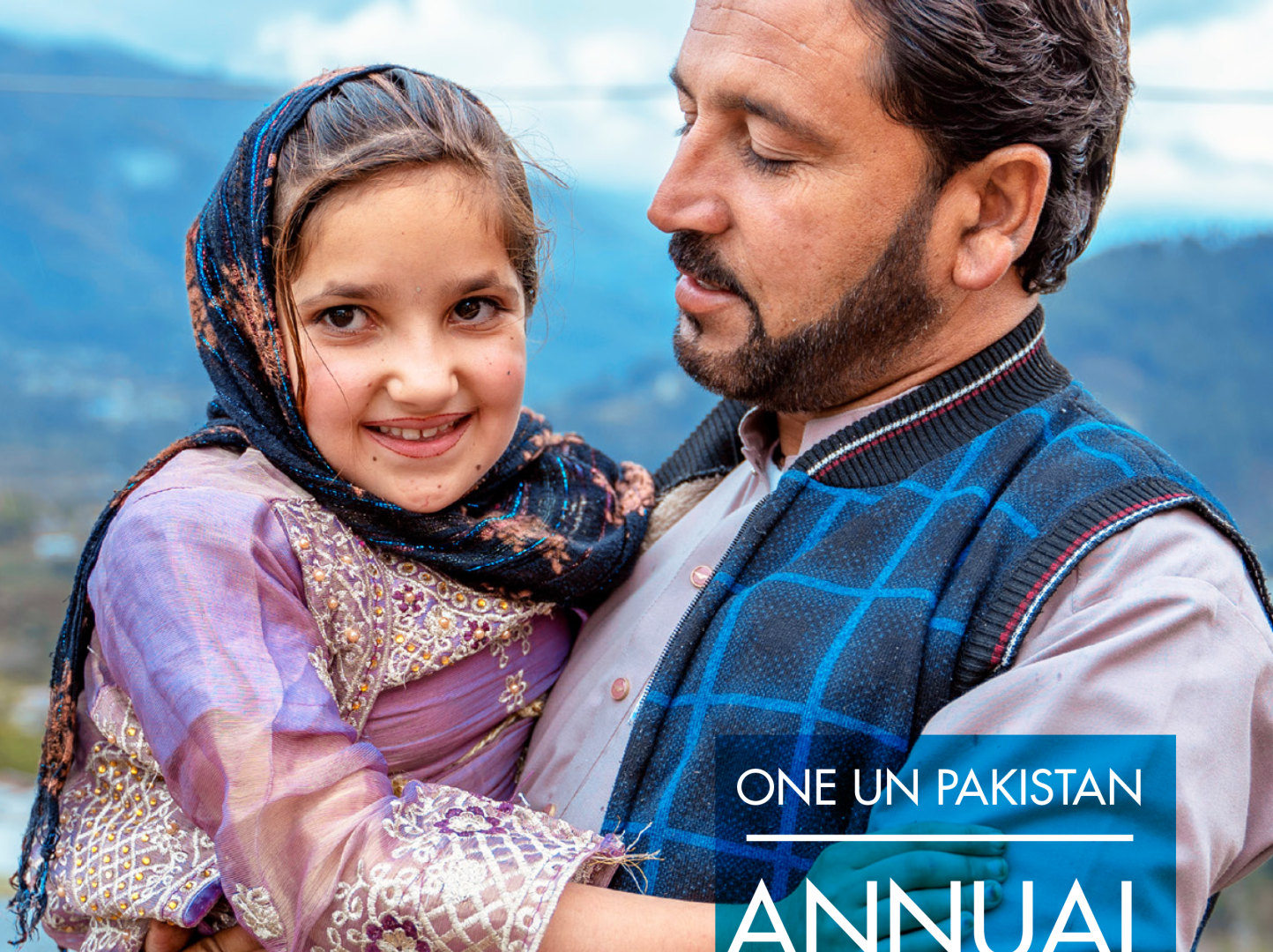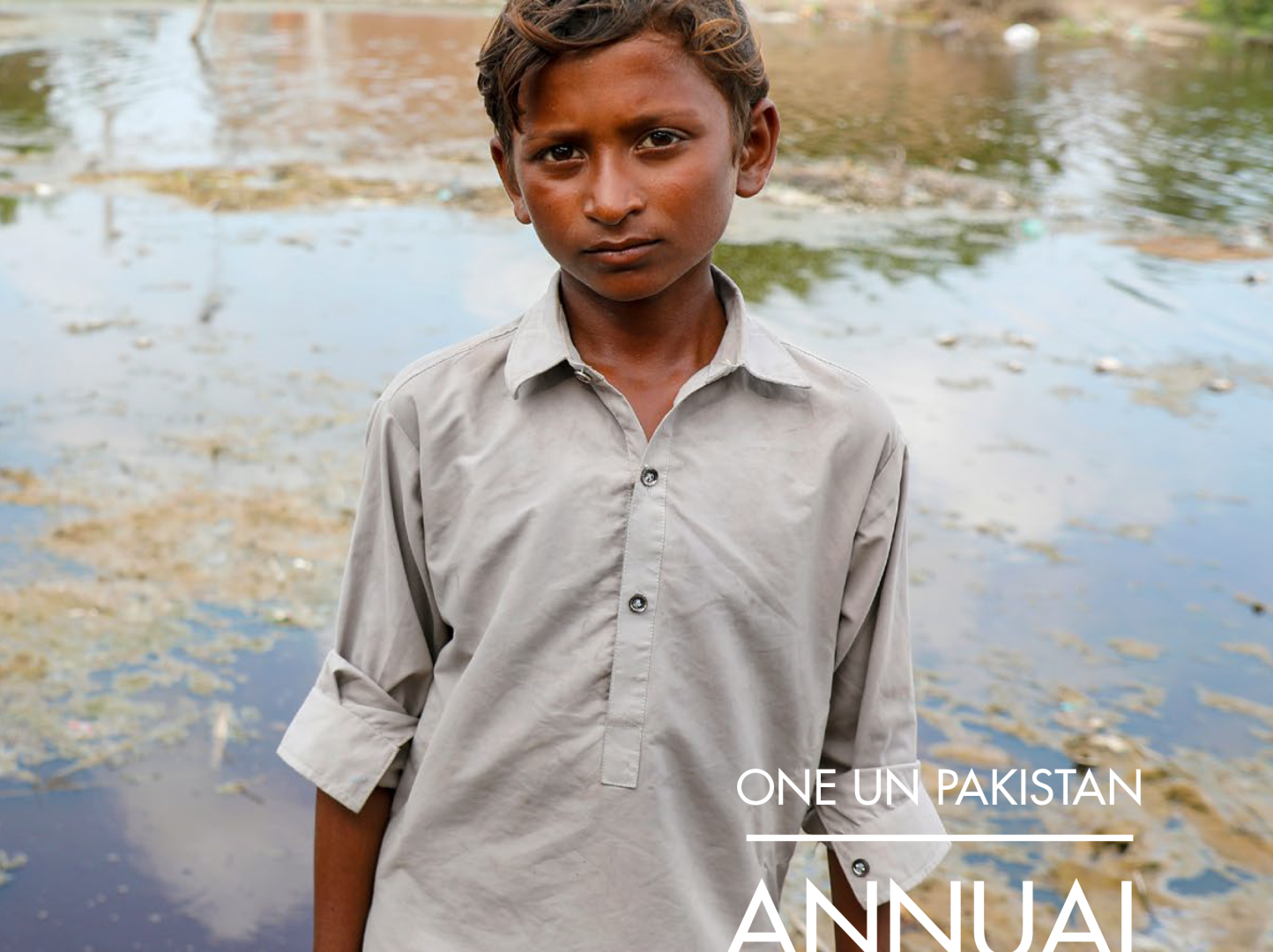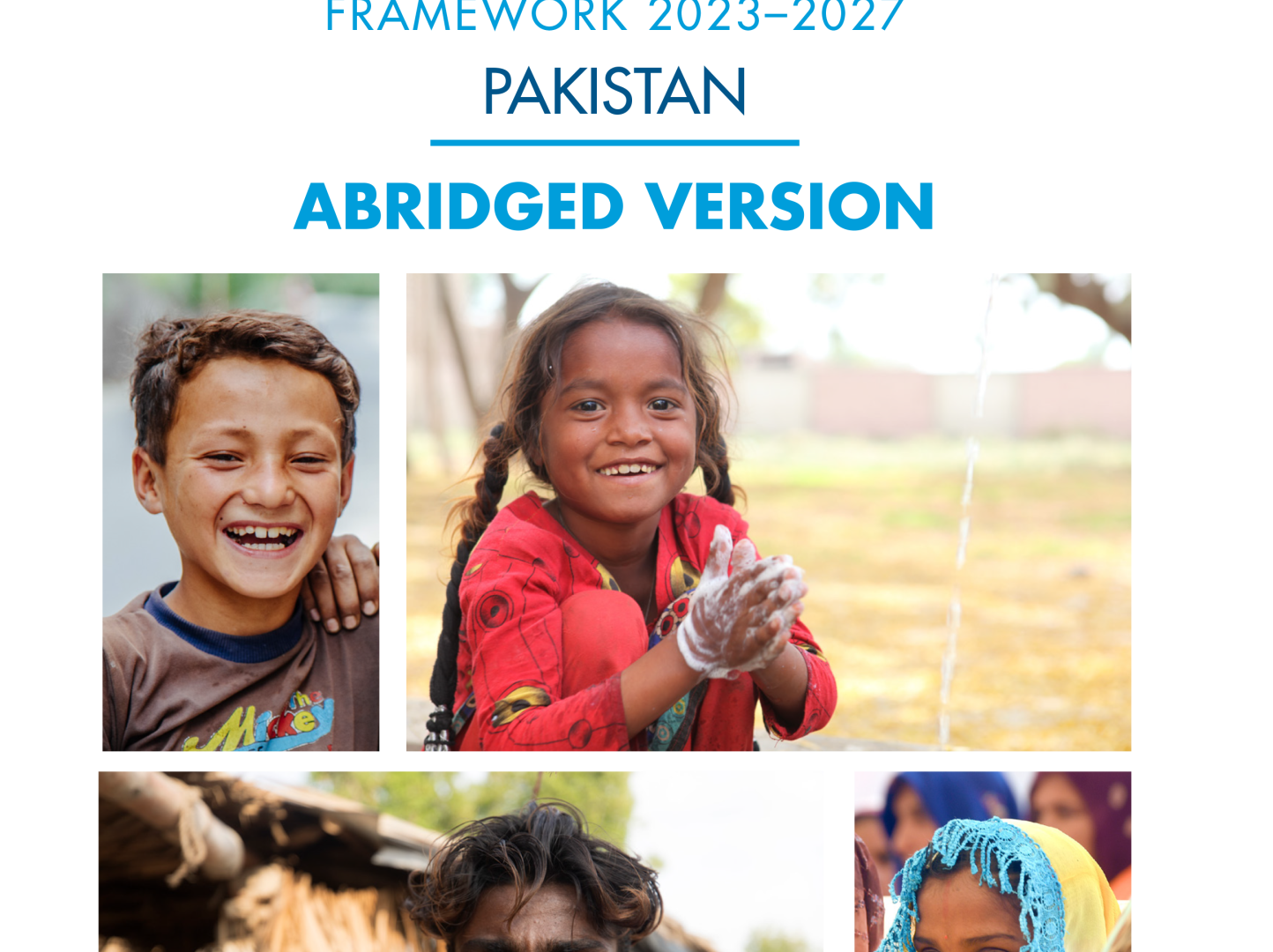Brief: United Nations response to Covid-19 in Pakistan, October 2020

The UN’s response to COVID-19 in Pakistan is about saving lives, protecting people, and recovering better. We are supporting the Government to do so in three key ways. First, our immediate health response is led by WHO to control the transmission of the virus, and reduce mortality by providing care for those affected.
Guided by the UN Resident Coordinator, UN agencies are supporting country-level coordination, planning, and monitoring. We know that misinformation kills; this is why we need people to understand that COVID-19 is real, and we can and must beat it together. Our risk communication and community engagement efforts are raising awareness of how to stay safe by engaging communities, young people, the media, leaders, and vulnerable groups nationwide. We are mobilizing different platforms to dispel myths – from helplines, to social media, television and radio outreach. UN support for surveillance and case identification is pinpointing people suffering from COVID-19, to link them with the health care and support they need. Screening and capacity strengthening at points of entry seeks to keep spikes at bay, while support for laboratories is enhancing testing. Infection prevention and control measures range from providing personal protective equipment (PPE), to building water, sanitation and hygiene (WASH) facilities, training for frontline workers, administrators and decision-makers, and generating the data needed to inform effective decisions.
Second, our humanitarian response is addressing the humanitarian impacts of the COVID-19 pandemic on the most vulnerable groups in the country – an especially vital component as floods inundated great swathes of Sindh in September.
Third, our socio-economic response is confronting the human crisis that COVID-19 has wrought, guided by the five pillars of the UN’s COVID-19 Pakistan Socio-Economic Framework. Our focus is on keeping vital services accessible, households afloat, businesses solvent, supply chains functioning, institutions strong, public services delivering, and human rights at the forefront. Our first priority is health. We are supporting the health system to combat COVID-19 while continuing to deliver quality services for all, especially mothers, children, and people suffering from other illnesses, like tuberculosis. Social protection and basic services are our second pillar, with a focus on food security and nutrition, the continuity of learning and the safe reopening of schools, psychosocial support,
and services for survivors of gender-based violence. Our third focus is economic recovery. The most at-risk workers – women, daily wage labourers, and vulnerable groups – are at the heart of our efforts. Our fourth pillar promotes multilateral collaboration and macroeconomic response, while our fifth pillar advances social cohesion and community resilience by mobilizing Pakistan’s youth.
















